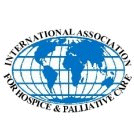IAHPC
Traveling Scholars’ Reports
From Chennai, India
by Subathra Muthukumaran, MD
I work at the Lakshmi Pain and Palliative Care Clinic,
a charitable Trust at Chennai, India. I am an honorary
palliative care physician since 2005 and without the
support of the International Association for Hospice
and Palliative Care I would have not been able to make
the trip to Singapore for the classroom intensives which
are part of the Certificate Course in Health (Palliative
Care) of Flinders University, Australia.
Our clinic has been interacting regularly with the
Ministry of Health, Government of Tamilnadu state, to
promote palliative care - starting clinics, simplifying
the license for oral morphine, and including palliative
care in the medical and nursing curriculums. Tamilnadu
state was among the first few states in the country
(India) to simplify the licensing of storage and dispensing
of oral morphine; but training in palliative care is
necessary to get the license and there are very few
trained professionals in this state. Hence our clinic
is committed to training professionals and to teach
them about end-of-life care and the use of oral morphine
to relieve the pain and suffering of cancer patients.
With this view, our clinic organized the Certificate
Course in Palliative Care for doctors and nurses at
Chennai (approved by the Indian Association of Palliative
Care) and I am one of the faculty members. We are also
planning to train volunteers to form a network in the
community to better reach all those who need palliative
care. I decided to obtain the Graduate Certificate in
Health (Palliative Care in order to equip myself provide
better care for my patients and to be a better teacher
of health care workers.
The classroom sessions in Singapore were very interactive
and it was a good opportunity to learn from experts
in the field. There were professionals from 15 different
countries which helped me learn about many different
palliative care models and also about the differences
in end-of-life care in various cultures. Portfolio writing
and video critique teaching tools were used. These helped
me to identify areas where I felt a need to improve
and learn more; they also helped hone my knowledge and
communication skills.
The completion of this course has provided me with
a tremendous feeling of confidence. I wish to thank
IAHPC for sponsoring and making this trip possible.
Traveling
Scholar’s Report after attending the International Network
of Cancer Treatment and Research (INCTR)
by Mr. David Wata, Kenya
The International Association of Hospice and Palliative
Care (IAHPC) sponsored me, through their traveling scholarship
program, to attend the 8th INCTR meeting on countries
with limited resources that was held in Antalya, Turkey
during March of 2009.
I learned a great deal by attending the meeting; the
following are some of the highlights:
- Making a difference and leading by example
– building capacity to manufacture oral morphine
preparations. A poster presentation demonstrated how
a government cancer centre in India was able to set
up a facility to manufacture morphine solution and
capsules. The institution I work for, Kenyatta National
Hospital, in Nairobi, Kenya has a small manufacturing
unit. We do prepare a morphine solution, but do not
manufacture the capsules. From this paper, I have
learned that it is possible for us, with institutional
and professional support, to produce morphine solutions
in large batches and also, hopefully, to manufacture
morphine capsules. This will enable us to reduce the
cost of morphine to the patient.
- Use of wheat grass in the supportive care
of terminally ill cancer patients. A study
was presented that examined if there is an effect
of wheat grass juice on the quality of life of terminally
ill cancer patients. Terminally ill cancer patients
drank wheat grass juice for a six month period. At
the end of the study, they measured hematological
indices and performance status and found that those
taking the wheat grass had improvements between 50
– 70% in the parameters measured. Their conclusion
was that wheat grass juice should be used in these
patients. Wheat grass is widely available in my country
but it is hardly, or never, used by medical practitioners
in palliative care for terminally ill cancer patients.
In fact, the use of most herbal and complementary
medicines is frowned upon. I intend to conduct a study
using wheat grass and other complementary medicines
that are currently in use by alternative health practitioners
in order to determine their clinical effectiveness.
- The INCTR PAX program presented the work
they do. INCTR established the PAX program
to address the challenges related to the delivery
of palliative care in developing countries in which
such care can be hindered by limited access to opioids
and other symptom-relieving medications, rural dislocation
of a population, competing health priorities, war
or political instability, and limited access to health
care services. The goal of the PAX Program is to assist
developing countries to initiate and sustain effective
palliative care programs suitable for their countries
in order to provide an improved quality of life for
all patients with cancer, especially for those when
cure is not possible.
All this has been done in developing countries including
Kenya. The next step for us is to access the same INCTR
structures and support to be able to further develop
palliative care services. This should be possible since
we already have a few INCTR projects running in my country.
We received a free copy of a palliative care handbook
from INCTR – a reference guide.
This experience was very valuable for me. I learned
a lot and I am a better person for it. The patients
that come to my institution will be able to access better
and more innovative services than they would have had
I not attended this conference.
I am very grateful to the IAHPC for providing the financial
support that enabled me to attend this meeting. Once
again, thank you very much for awarding me the scholarship.
Mr. DAVID WATA
Oncology Pharmacist
KENYATTA NATIONALHOSPITAL
Nairobi, Kenya
|

